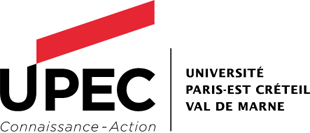AIRDUCATION offers free access to four digital training programs: the Citizens Course, the Youth Course, the Professionals Course, and the Environment Course. Each course offers content tailored to the needs of the different audiences. They are accessible via a
dedicated web portal (in French), and use fun and interesting methods to teach scientific concepts.
The Youth Course
The Youth Course takes the form of a serious game for young people aged 14 and over, as well as teachers, in which players take on the role of a character conducting a scientific investigation into preconceived notions of air quality. Each investigation corresponds to a training module (32 in all) and to an educational objective.
The Citizens Course
AIRDUCATION's Citizens Course is aimed at everyone, whether they already have knowledge about the quality of the air we breathe, or are simply curious. This module provides the answers needed to understand the health implications of poor air quality, offers solutions to limit exposure to air pollution, and encourages people to adopt and share best practices to improve air quality.
The Professionals Course
The Professionals Course is aimed at all healthcare professionals wishing to acquire the knowledge needed to provide patients with personalized support in terms of prevention and recommendations. They will learn to optimize diagnoses by easily detecting the link between exposure to air pollution and the onset of various illnesses and diseases (respiratory, cardiovascular, neurological, etc.).
The Environment Course
The AIRDUCATION Environment Course is aimed at anyone whose professional, political or community activity is potentially linked to the issue of air quality and its effects on health. More specifically, it is aimed at administrations, local authorities, and associations that are involved or planning to be involved in the issue of air quality.
AIRDUCATION Project Partners
AIRDUCATION was first launched by UPEC and is co-sponsored by Airparif. It brings together numerous partners from the public and private sectors, including: Académie de Créteil education authority, ADEME, CNRS/IPSL, the Val-de-Marne Departmental Council, Direction Générale de la Santé, FIMEA, Fondation du Souffle, Grand Paris Sud-Est Avenir, Les Respirations, the City of Paris, Suez, and Université Paris Cité.
The international organization UN Environment Programme will play the role of external observer and monitor the work done.
UPEC has assembled a team of dedicated professors from the environmental, health, and social sciences. The project team has received support from the Academic and Digital Uses Support Department and the Continuing Education Department.
The project has also received support from the European Union through a grant from the
European Regional Development Fund (ERDF).

